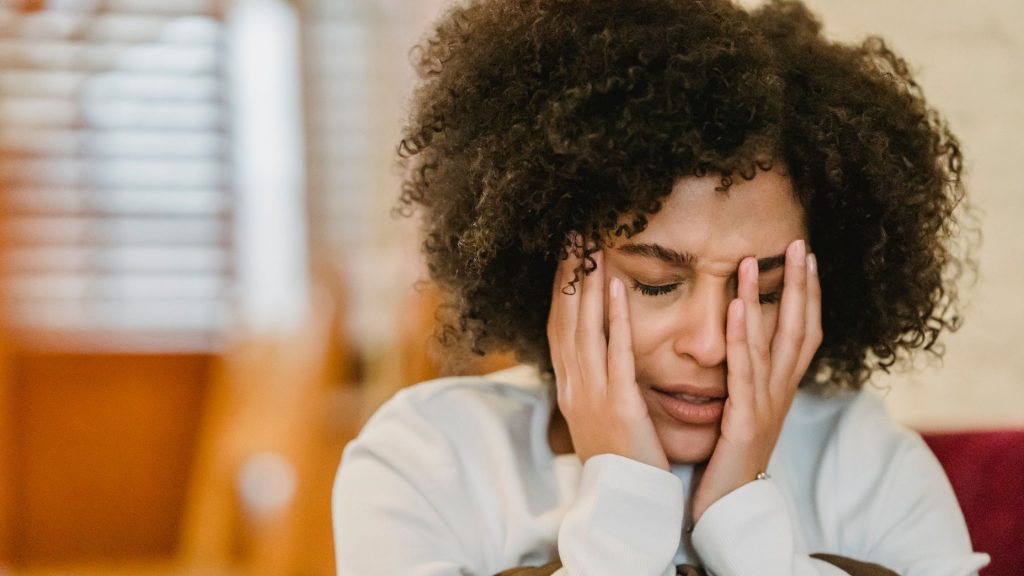In times of uncertainty, many of us have a tendency to fear the worst.
Of all the possible outcomes, if threat or harm is a possibility, our brains are prone to overestimate the likelihood of that worst possible outcome. This can lead to a certainty that the worst possible outcome will occur, and we can begin to obsessively plan for when it arises. This cognitive distortion is called Catastrophising, and it can particularly affect people who have anxious temperaments, people who were raised by parents with unhealed trauma, or people who have experienced serious negative events in their past.
Our brain will often overestimate the likelihood of the worst possible outcome.
However, this catastrophising can also occur simply due to an overexposure to anxious thought patterns, or conversations with others who may be struggling with anxiety, or are prone to catastrophisng themselves. It can also be brought on after consuming too much news or current events content, which over-reports catastrophe and under-reports stories of healing, health, and abundance.

Our ability to maintain a “faith in the goodness of life” is being challenged, especially now as we find ourselves in a time in history that is plagued with uncertainty. Many people have feelings of uncertainty as a response to several triggering events or scenarios, whether it be the pandemic, elections, or changes in the economy, all of which are substantially out of our control. As we are challenged with these issues, we are being invited to examine our own relationship with uncertainty, and observe how much “faith in the goodness of life” we have activated, in order to best cope with events we have no control over.
What can we do to combat uncertainty?
We have found that the most effective way to manage anxiety in the midst of uncertainty, is to lean into the uncertainty, to trust and surrender to what you know about life—that life is a good and giving force, that our bodies are designed to ward off illness and keep us thriving, and that “we’re all in this together”, creating a sense of protection and connection to others.
Faith in the Goodness of Life is one component of the Optimism Code from The Wellbeing Codes. Faith in the Goodness of Life is about believing that life will look after you, that your immune system is highly intelligent, that your trillions of cells are all communicating with one another to create optimal health, and focusing on blessings and abundance rather than harm, illness and calamity.
People that struggle to believe in the “goodness of life” often experience anxiety and stress.
People that struggle to believe in the “goodness of life” often experience anxiety and stress. The amygdala becomes overactive and becomes hypersensitive to potential danger—everywhere—even if the likelihood of danger is very low. This perpetuates anxiety, controlling behaviours, over-analysing and constant reassurance-seeking.

How do we gain Faith in the Goodness of Life?
Three things that we can all do to start to activate more Faith in the Goodness of Life, are:
- 1. Go out in nature and be in awe. Life itself is regenerative, and we are part of the cycle of life.
- 2. Explore your willingness to surrender to life. How willing are you to trust that life will take care of you in the same way that it takes care of all living things?
- 3. Examine the origins of your anxiety in the face of uncertainty. When you were growing up, did you receive constant messages about how unsafe life is, or to always be aware of potential danger? This may be something worth exploring with a counsellor or therapist.
We can’t change the world around us, but we can change how we respond to the world.
To have faith in the goodness of life is to have faith that the bad times are only temporary, that we are all part of the cycle of life through good and bad, and we can always make it to the other side. By mindfully connecting to the world around us, trying to stay grounded in feeling that we are just a small part of the world, we can let go of our need to control what happens around us, and understand that we can’t control and prepare for everything life may throw our way. It can be really useful to reflect on why we feel the need to control our surroundings, as it may be a result of childhood beliefs, thought patterns, or schemas that require discussing with a professional.









Love this, thanks for sharing!